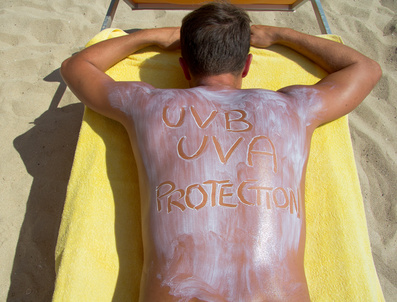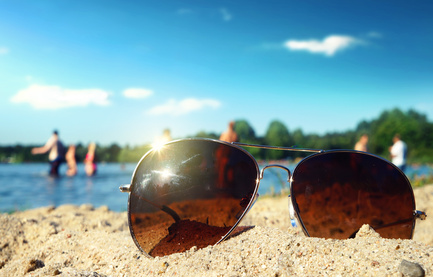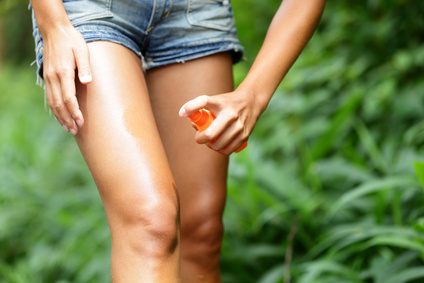There is often so much to remember when you’re off on your hols that the simple things can often be forgotten. We’ve gathered some holiday info and advice together that you may have overlooked, so have a read to ensure you and your family stay healthy and happy on your next holiday!
Sun cream
The dangers of sun exposure are common knowledge, and therefore so is the importance of taking care of our skin when on holiday. When was the last time you bought a new bottle though?

Living in the UK, sun cream only comes out of the cupboard for a few weeks a year thanks to our less than summery summers and therefore we can all be tempted to use the same bottle for a few years running. But is it safe to use last year’s sun cream?
Sun cream does have an expiration date and it is very important to store it correctly and throw out expired bottles to ensure your skin receives the correct protection. Using expired sun cream just won’t protect you from the sun’s harmful rays unfortunately.
Usually, sun cream is safe to use for 2 -3 years from the date it is opened as long as it has been stored away from direct sunlight and high temperatures. Be sure to use enough sun cream as well; a light covering is rarely enough to properly protect yourself so be sure to completely slather yourself in it. Generally 85ml per person is a good rule of thumb; that’s about 4.5 table spoons. Avoid sun burn at all costs and keep your skin healthy!
Sunglasses and Specs
We all know about the damage UV rays can cause to our skin, but what about the damage caused to our eyes?

When it comes to sunglasses, you can pick up a cheap pair just about anywhere these days as well as a whole host of designer options too. Not all sunglasses provide the correct level of protection however, meaning your eyes could suffer. When purchasing your new sunnies, be sure to check they comply with the British Standard BSE N 1836:199 for the best protection. You should also look out for the CE mark which indicates that the glasses conform to European Community Standards. Lastly, look for glasses which block 100% of UV-A, UV-B and harmful blue light.
If you wear prescription glasses on a day to day basis, it would also be useful to consider taking a spare pair with you, in addition to a note of your prescription. Accidents can happen and if you were to break or lose your glasses at the start of your holiday, the rest of your trip could end up very miserable indeed.
It is also worth noting that if you are planning on driving when on holiday in some countries, such as Spain, there is a European Law which specifically dictates that prescription glasses wearers must carry a spare pair in the car at all times. Check the local law before you travel!
Passports
Naturally you won’t get very far without your passport but when was the last time you checked yours?

A number of countries specify an amount of time which should be left on your passport before it expires to enable you to enter a country. There is no minimum requirement for European countries but further afield, the set minimum can vary from 6 months to 9 months before your passport is due to expire. If your passport falls short, you could be denied entry. If you are travelling outside of Europe, visit the Foreign and Commonwealth Office website to view the entry requirements for your holiday destination.
In the past, young children were able to be added to their parents existing passport. This is no longer the case however and children will need their own passport. Remember to check your children’s passport more frequently however as children’s passports are only valid for 5 years as opposed to 10 years for adults.
Insect Repellent
With warm weather comes the annoyance of bug bites! Which repellent should you choose though, and did you know that there are a number of alternatives to your usual sprays and lotions?

When we’re on holiday, sometimes it can be hard enough to remember to reapply sun cream and that means that we often forget the threat of those pesky critters like mosquitos, midges and ticks.
There are a whole host of insect repellents available which are easy to apply and have long lasting effects. Sprays and lotions containing DEET are usually the most popular, which work by covering our natural odour, making us unattractive to insects. A few people can experience minor side effects including rashes and headaches however.
If traditional repellents don’t work for you, there a number of alternatives that you can consider instead, which for some people may make it far easier to fight the insects! Some people rave about natural solutions, with some of the more popular options being essential oils, although there a number of suggestions to choose from.
Insect repellent bracelets and anklets are well worth considering too as they provide a solution you can wear all day without worrying about having to re-apply! Insect repellent clothing is also worth considering if you plan to spend a great deal of time outdoors.
Whichever method you choose, be sure to battle the bugs on your next holiday, not just to avoid the irritation but to protect your families’ health too; after all the risk of Malaria, Lyme Disease and more in some countries is an important issue!
What holiday info and advice can you tell us about, which others may not think of?
Just leave a brief comment below – we’d love to hear from you!





